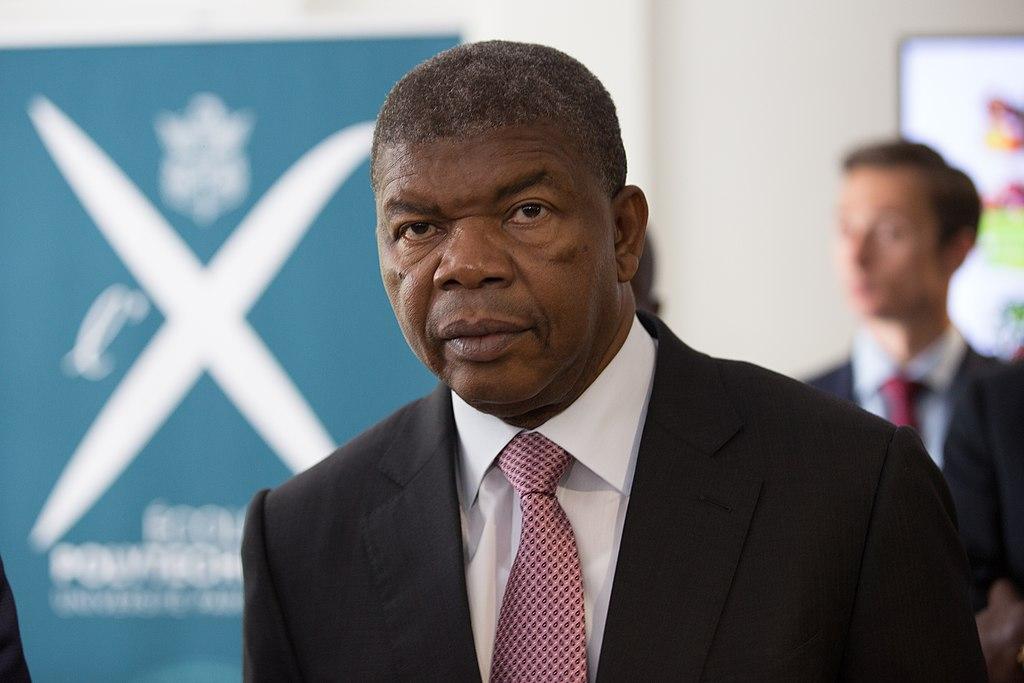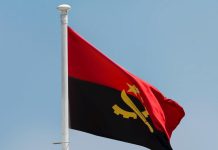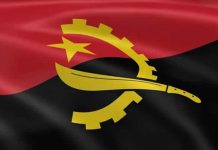Africa-Press – Angola. The Head of State, João Lourenço, defended, yesterday, in Dakar, Senegal, a vigorous reaction against the acts of terrorism and unconstitutional changes in Africa, based on a zero tolerance policy in relation to institutions and figures coming out of coups d’état.
The Angolan statesman defended the position during his speech at the opening ceremony of the 8th Dakar International Forum on Peace and Security in Africa, which this year is subordinated to the motto “Africa in the face of exogenous shocks: challenges to stability and sovereignty”.
The Head of State, who was accompanied, at the Forum that ends today, by the First Lady of the Republic, Ana Dias Lourenço, said that these two problems, which, as he underlined, seriously violate the Charter of the African Union, the Constitution and the basic principles of democracy in the countries concerned, do not always find, “unfortunately”, a vigorous response, capable of discouraging them from continuing.
“This practice does not constitute a solution to any internal problem that prevails in each of our countries, and should, therefore, deserve a vigorous reaction from all, based on a zero tolerance policy towards institutions and figures that emerged from a coup d’état” , highlighted.
President João Lourenço, who was speaking in the presence of other African statesmen and several international personalities present at the event, said that unconstitutional changes in Africa, even where there is no bloodshed, cannot be seen as something normal and remain unconstitutional. if waiting for the will of the putschists to return to constitutional normality, “when and if the putschists see fit”.
President João Lourenço, who currently holds the title of “Champion of the African Union for Peace and Reconciliation in Africa”, pointed out, as one of the ways to change this framework, the performance of coordinated work between regional organizations and the African Union, so that the initiatives that are undertaken lead to effective results capable of helping to restore confidence, peace and tranquility, order and security necessary for the continent’s progress and development.
The Head of State stressed that the armed conflicts on the continent, which affect the lives of populations and the economies of the countries, have conditioned the economic and social development of Africa.
“Conflicts of different natures and origins prevail in all regions of our continent, which naturally configures a dynamic that we must seek to reverse at all costs”, he exhorted.
On the other hand, the Head of State stressed that Angola, due to its experience and recent history, has spared no efforts in the search for solutions that promote peace on the continent.
“This spirit is always present and, now, with added responsibilities for having been granted to us by Your Excellencies, at the Malabo Summit in May of this year, the task of promoting actions and initiatives that contribute to the strengthening of understanding and national reconciliation at the continental level”, he stressed.
Recorded Advances
In this regard, the Head of State highlighted the actions carried out by Angola, within the framework of the International Conference on the Great Lakes Region (CIRGL), a mechanism that he said was practical, worked well and proved to be useful in terms of monitoring the problems that afflict the Central African sub-region, namely the border conflict between Rwanda and the Democratic Republic of Congo, between Uganda and Rwanda, and the one that persists in the Central African Republic.
“I can say, with some hope, that, despite the fact that there are still some worrying occurrences, there are also encouraging signs regarding the probability of restoring trust between the parties and, depending on this climate, to continue the dialogue initiated between the fraternal countries involved in the pacification process taking place in the sub-region”, he assured.
Also within the scope of Angola’s efforts in the search for solutions for peace and security on the continent, the President highlighted the understandings reached in Nairobi and Luanda, as a result of which an ad hoc Verification Mechanism was created, whose mission, as he said , could contribute to the de-escalation of the tension existing on the border between the DRC and Rwanda and thus allow important progress to be made in the normalization of the situation on the ground and in the relations between the two countries.
The Angolan statesman appealed, on the occasion, not to leave behind, within the scope of the search for solutions for the armed conflicts in Africa, what happened in the Tigray region, in Ethiopia, which should continue to deserve the permanent attention of African leaders until achieve ultimate peace.
“It is our duty not to leave the populations to their fate, at a time when they face a serious humanitarian crisis, while at the same time we encourage all mediation efforts that seek a peaceful and definitive end to this conflict”, he clarified.
Another issue raised by the Angolan statesman at the 8th edition of the Dakar International Forum on Peace and Security in Africa was food security in Africa.
For President João Lourenço, this issue should also deserve the attention of African leaders, as it is an important component of peace and security.
He said that the scarcity of food and water for human consumption has several causes that African governments are trying to overcome with different projects and programs, but, despite this, he stressed that the severe drought, in some regions of the continent, causes real humanitarian catastrophes, such as it happens seasonally in some Sahel countries, Somalia, and part of Kenya.
“With the prolonged drought comes extreme poverty, the loss of livestock which, at times, constitutes the only source of wealth for the populations”, stressed the Angolan statesman, for whom extreme poverty is a fertile field for human traffickers. , prostitution, illegal emigration to Europe or even to feed the ranks of fundamentalist movements, which cause instability and foment terrorism on the continent.
“We cannot give up in the face of the consequences of climate change and its consequences on populations, on economies, which have a negative impact on the peace and security of our countries”, he urged.
Universal Security
As part of the search for peace in the world, the Head of State defended peace in the Middle East, the resolution of the Israeli-Palestinian conflict (in the light of the relevant United Nations Security Council resolutions), the negotiated and peaceful resolution of the conflict in Korean peninsula, as well as the need to reach an immediate ceasefire and the resumption of negotiations to put a definitive end to the war in Ukraine.
“As an integral part of this global world, we stand for not only peace and security for our continent, but universal peace and security.”
Consequences of Covid-19
The Head of State stressed that the fight against poverty and the programs aimed at this objective not only had to be postponed but also ceased to have the resources available, “which were not many anymore”, because they had been channeled to the fight against Covid-19 and to the mitigation of its most direct effects.
Accordingly, he said that it was necessary to recognize that poverty exponentially increased the probability of new tension factors that could lead to conflicts.
As a result, President João Lourenço defended the need to face this situation with the necessary objectivity and seek to resolve it based on the rational and responsible use of the resources available to the continent, in order to prevent it against malicious use of the difficulties by adverse forces.
At a time when the continent was preparing to recover from the effects of the Covid-19 pandemic, the Head of State said that the conflict between Russia and Ukraine had arisen, the consequences of which had such a dramatic impact on the impoverishment of African families, as a result of difficulties in accessing agricultural inputs and essential foodstuffs.
For More News And Analysis About Angola Follow Africa-Press






